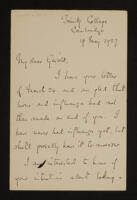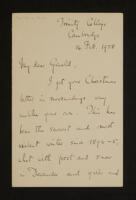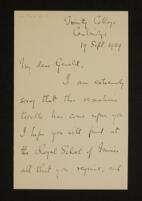Presentation album of 13 mounted black and white photographs taken by J. Palmer Clarke at the beginning of World War I, showing images of nurses and soldiers posed in Nevile's Court, the cloisters of Nevile's Court while serving as a hospital, with images of sick and wounded solders in beds, on the lawn beyond, and on the lawn and in tents in the North and South Paddocks on the Backs, with one image in New Court, possibly of the arrival of the first patient. Presented in an album with the following in gold lettering on the front: "Presented to the Library of Trinity College, Cambridge by the Officer Commanding, the Registrar and the Quartermaster of the 1st Eastern General Hospital T.F., June 16, 1915."
Accompanied by a letter from the Officers of the 1st Eastern General Hospital presenting a silver cup in commemoration of September and October 1914, when the sick and wounded soldiers were treated in Nevile's Court. The letter is signed by sixteen men, including Col. Joseph Griffths, Officer Commanding, Major F. E. Apthorpe Webb, Registrar, Lieut. Reg. H. Porter, Quartermaster, Lt. Col. Frederick Deighton, Lt. Col. Laurence Humphry, and Lt. Col. G. Sims Woodhead.
Griffiths, Joseph (1863-1945), pathologist, Commanding Officer of the First Eastern General Hospital



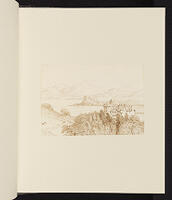

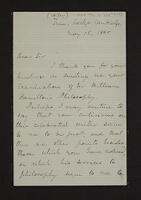




![Draft, "On Hanno from the Latin of Kluge" by [Robert Leslie Ellis?]](/uploads/r/trinity-college-library/a/b/c/abcfff0832bf70d88d1e57dba392b527bd428bd0e253dbc13d197628c056b6c1/Add.Ms.a.79.502_thumb.jpg)


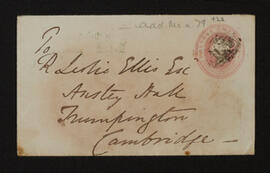


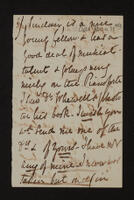
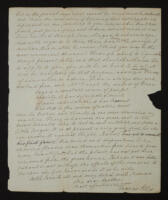



![Incomplete letter from Lady [Sussex?]](/uploads/r/trinity-college-library/a/0/3/a03447447ed389d1c8068f338c42ce72e6fb2629d9f65dee562a73b838a91da4/002_Add.ms.a.79_1734_front.tmb.jpg)



![Letter from [?] Ashley to William Whewell](/uploads/r/trinity-college-library/0/f/0/0f039ce051fef93b2489a82877f3c19146e188d1a75506ddad614b1d741147e7/Add.Ms.a.79.32_thumb.jpg)
